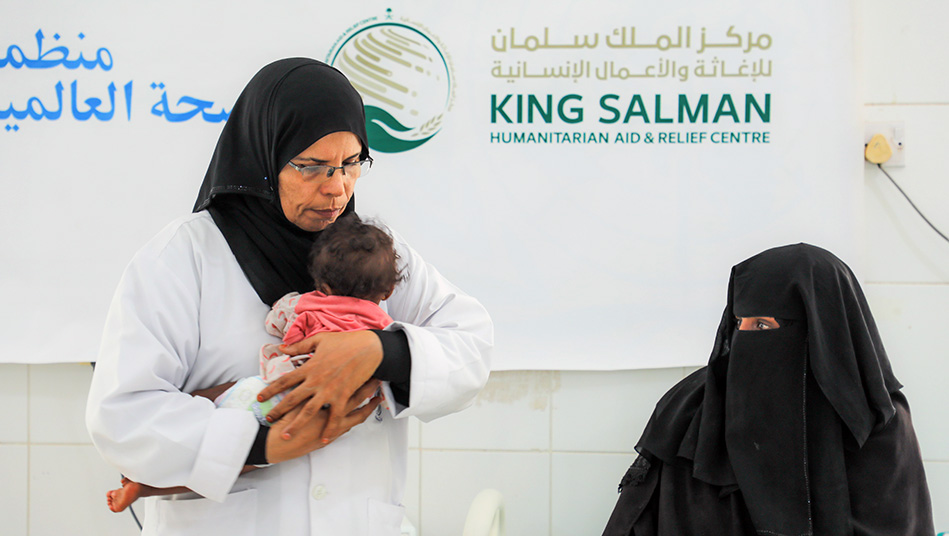
Cairo, 14 December 2020 – The World Health Organization (WHO) and the King Salman Humanitarian Aid and Relief Centre (KSrelief) have started the implementation of a new project to support the delivery of essential health services in Yemen.
Funded at US$ 20.5 million, the project is part of a broader US$ 46 million agreement between the two organizations, signed in September 2020, that also included 3 other projects on COVID-19 preparedness and response, nutrition, and water and environmental sanitation services.
Under this new award, the Health Cluster will receive support for information management, the functionality of emergency operation centres and the operational costs of the cluster coordination offices, benefiting to up to 5.1 million people.
Critical support to the Minimum Service Package (MSP) will be provided, including in 15 hospitals located in priority districts as defined by a health needs-based assessment, to improve the population's access to secondary care.
The support for the MSP includes, but is not limited to, reproductive and maternal health, strengthened preparedness capacity and improving the capacity of health staff and pre-hospital and referral care. Up to 1.8 million people are targeted through this.
KSrelief has been the main funding partner of WHO in 2019–2020. Since October 2019, the partnership between the two organizations has helped preserve the health system in Yemen, including through support to the most vulnerable. Continuous support from KSrelief has allowed WHO to facilitate the provision of life-saving medicines, including treatment for patients with chronic, life-threatening conditions, such as kidney failure. The partnership has also supported child immunization programmes and assistance to pregnant women for safe birth deliveries.
About the humanitarian crisis in Yemen
Yemen remains the world's worst humanitarian crisis and the WHO's most complex operation. Some 24.3 million people – 80% of the population – now require humanitarian assistance or protection.
The health system is on the brink of collapse. More than 17.9 million people (out of the total population of 30 million) needed health care services in 2020. At the same time, only half of the health facilities are fully functioning. Those that remain open lack qualified health staff, essential medicines and medical equipment, such as masks and gloves, as well as oxygen and other necessary supplies.
About the Health Cluster in Yemen
The Yemen Health Cluster is responding to the health consequences of the conflict, severe economic downturn and COVID-19 pandemic in the country. To prevent indirect mortality from vaccine-preventable and treatable diseases, the Health Cluster has committed to maintaining essential health services and systems as emphasized in the 2020 Yemen Humanitarian Response Plan extension and as outlined in the COVID-19 Strategic Preparedness and Response Plan (SPRP). The Health Cluster has prioritized providing essential life-saving health services based on the Minimum Services Package (MSP).








